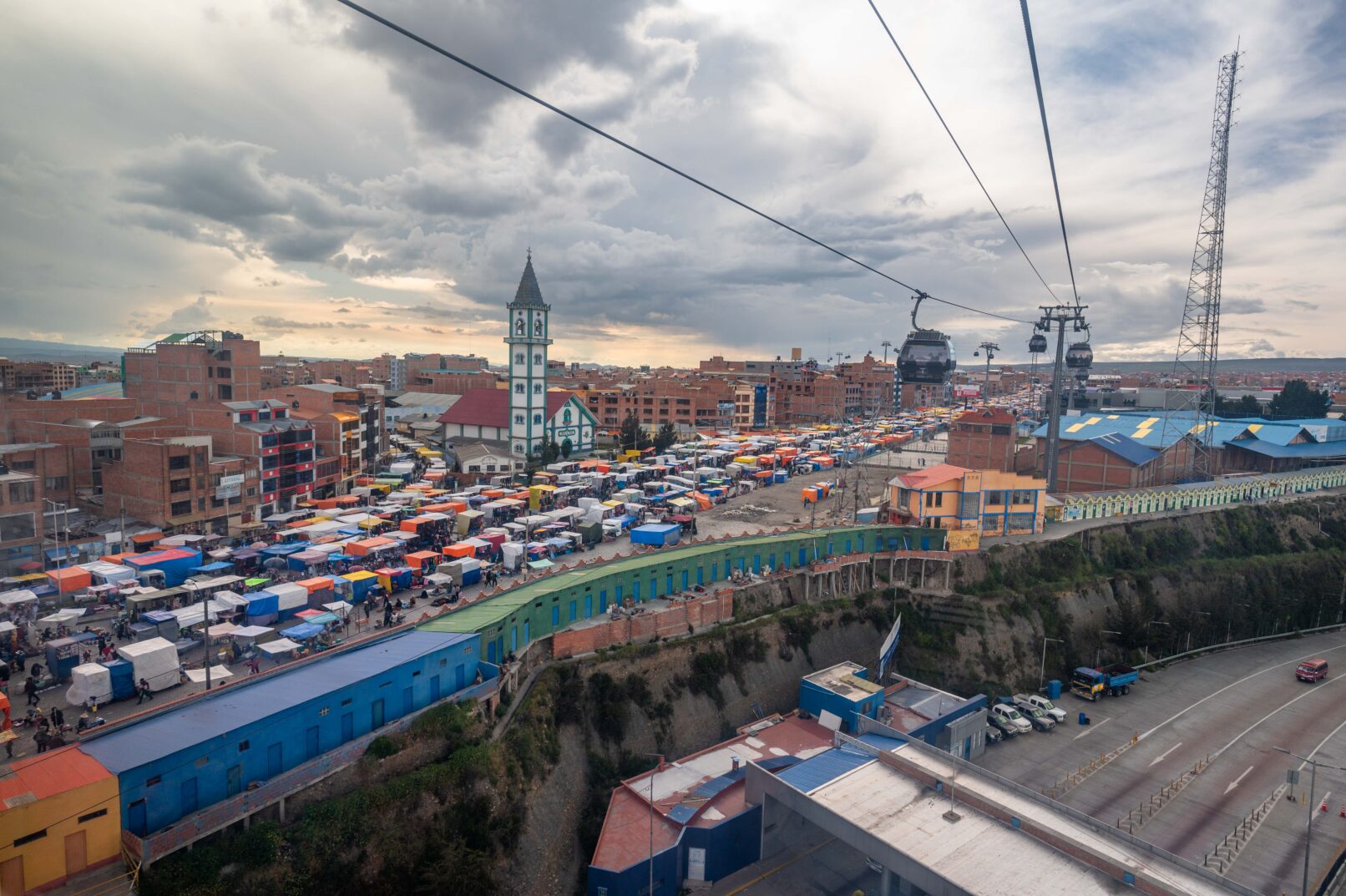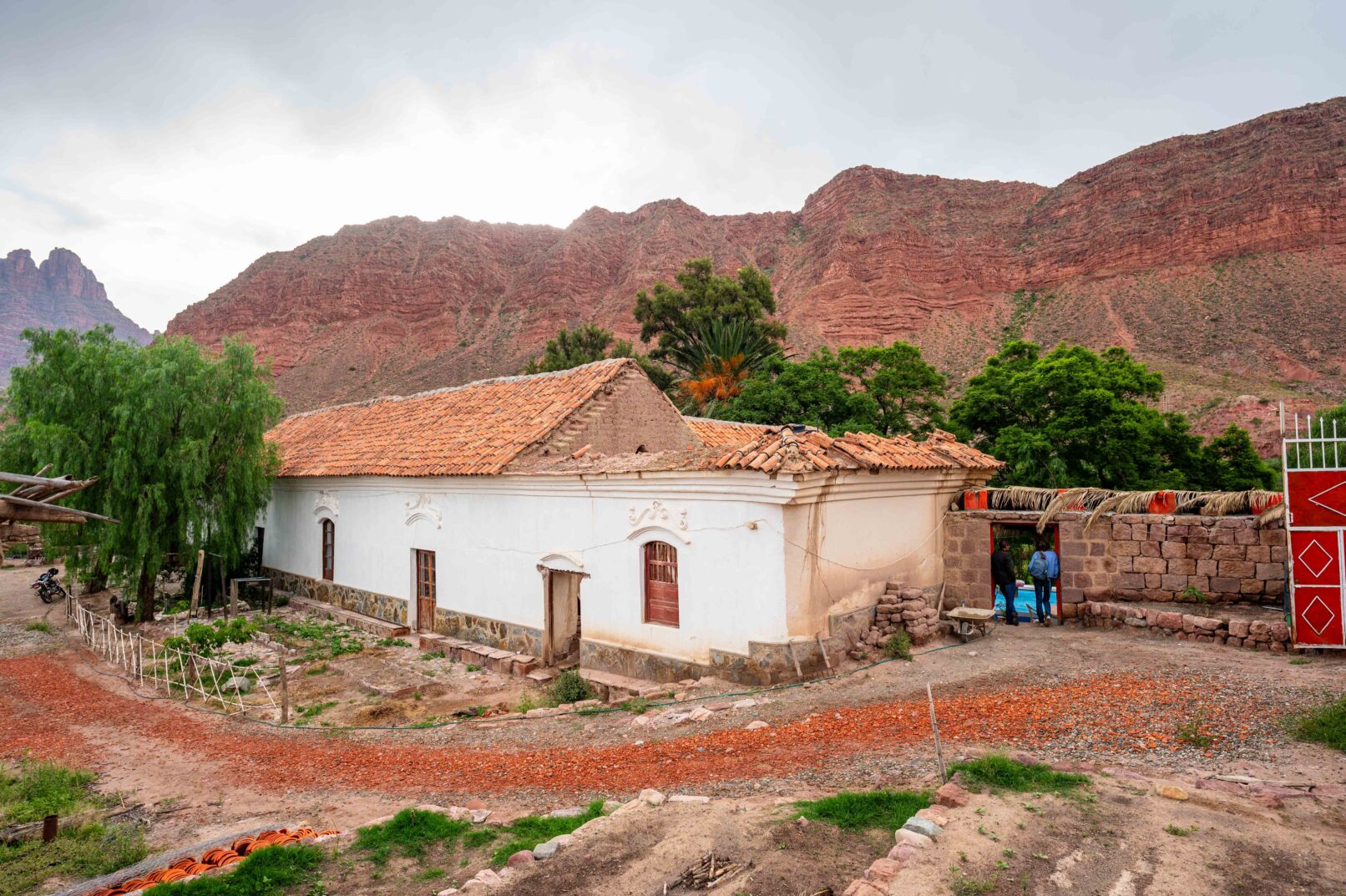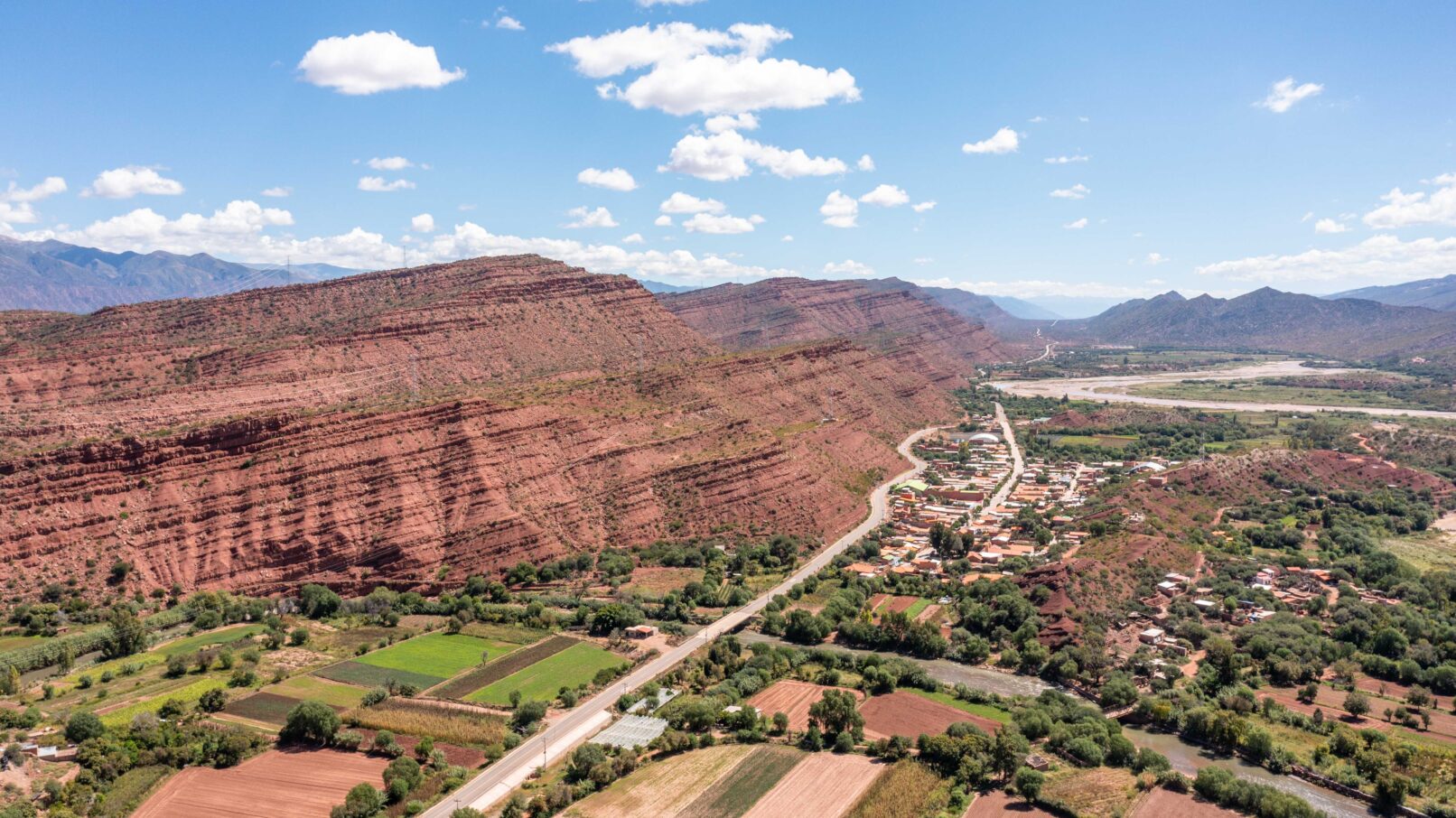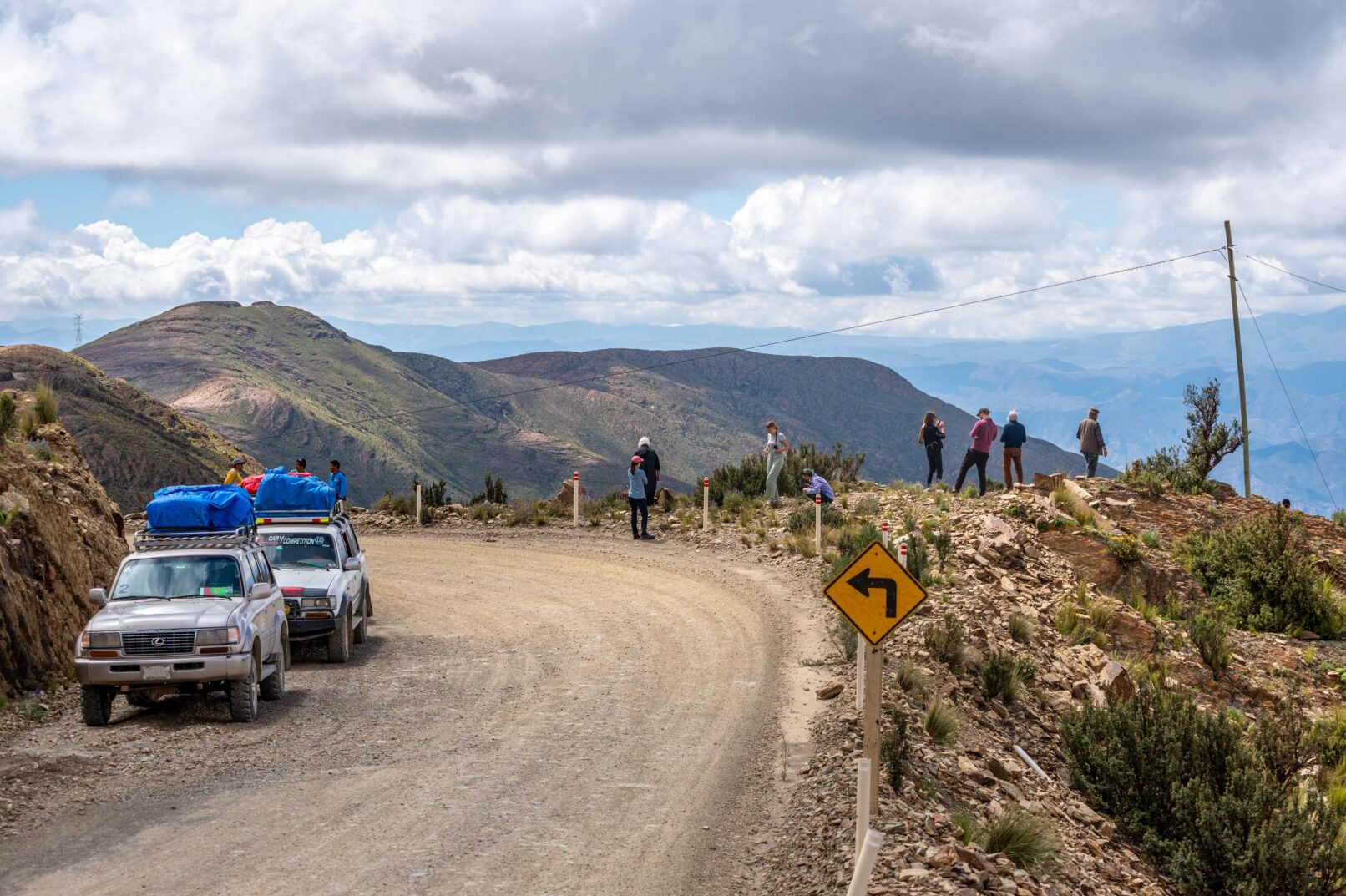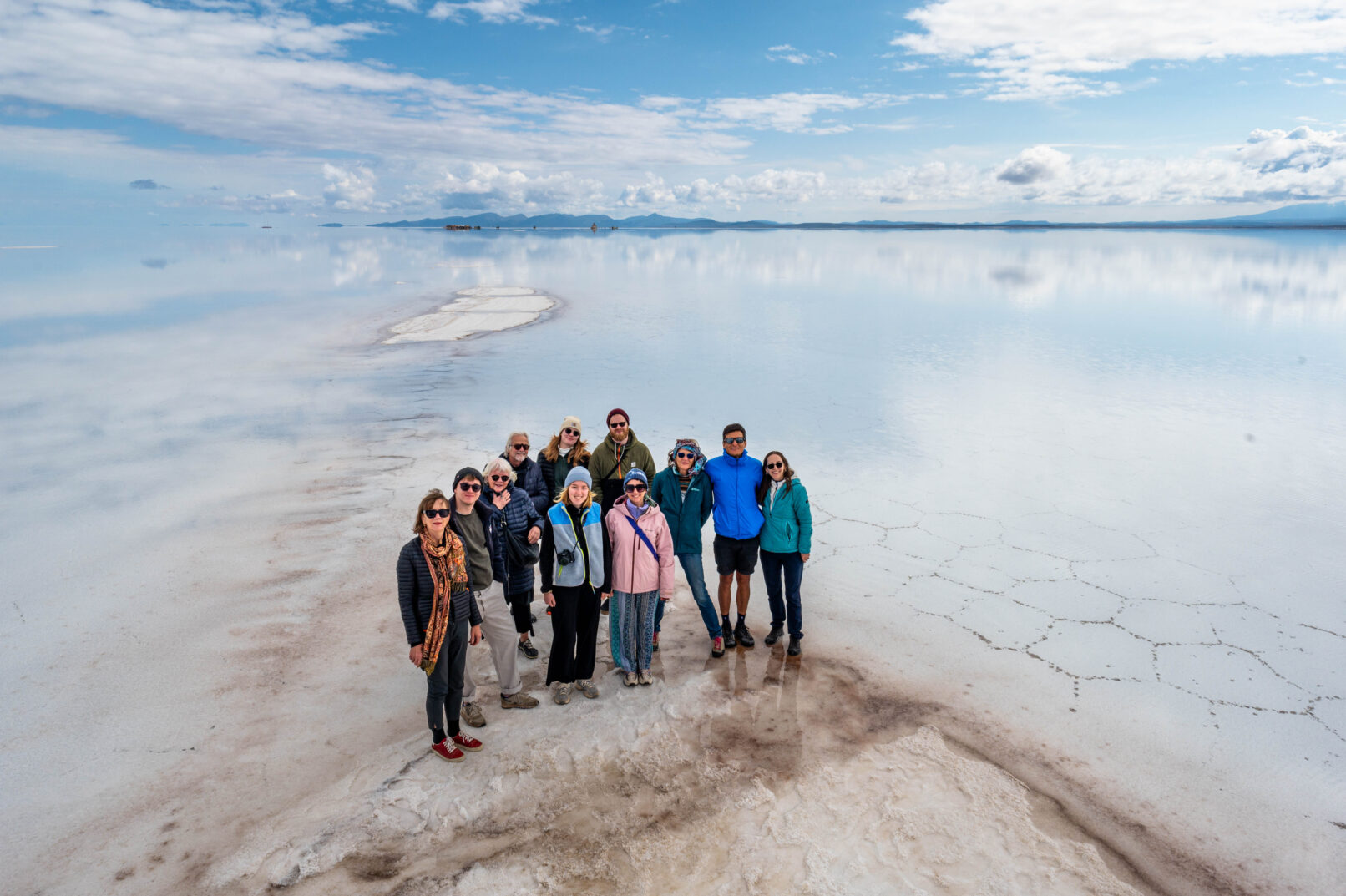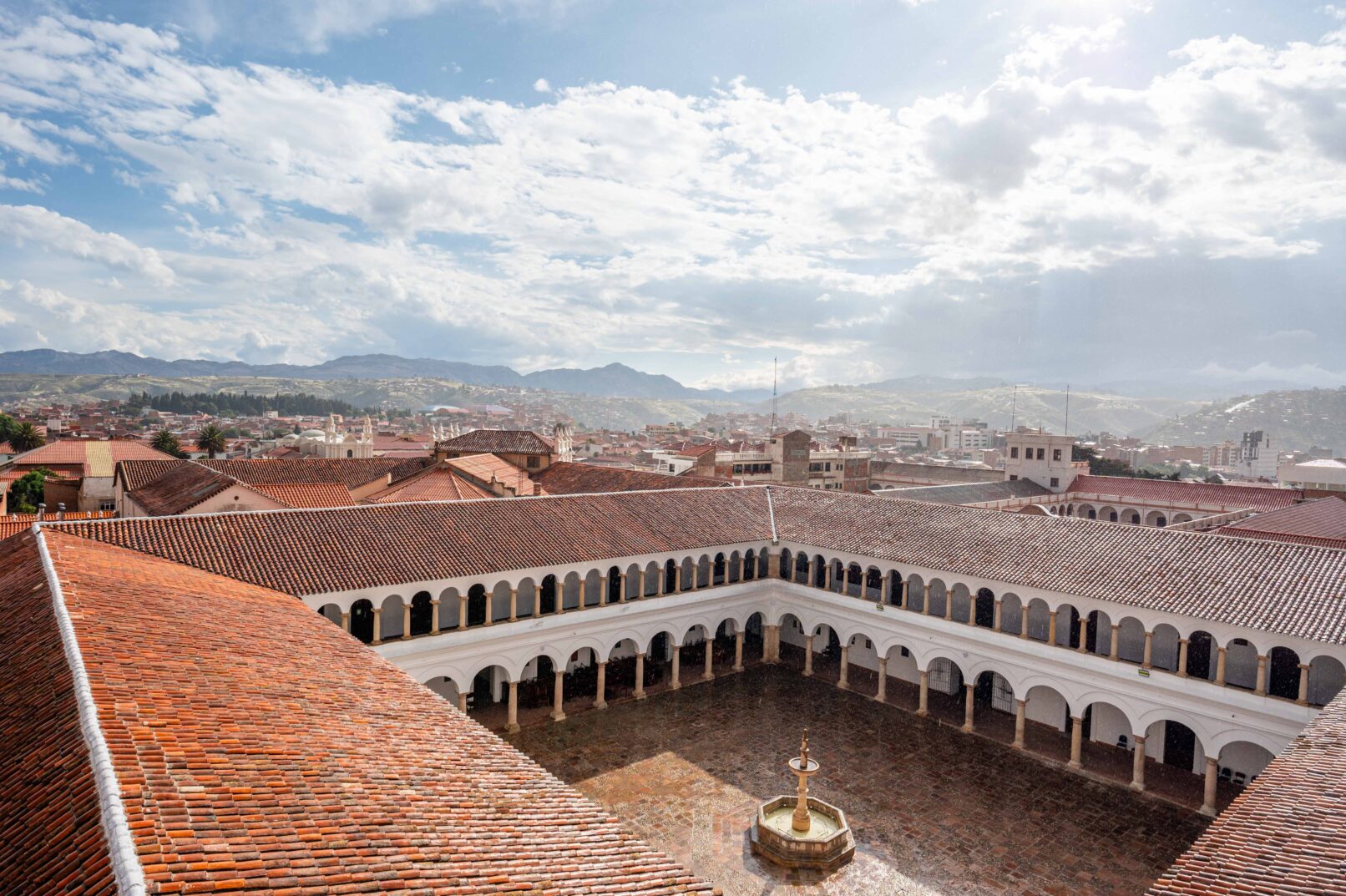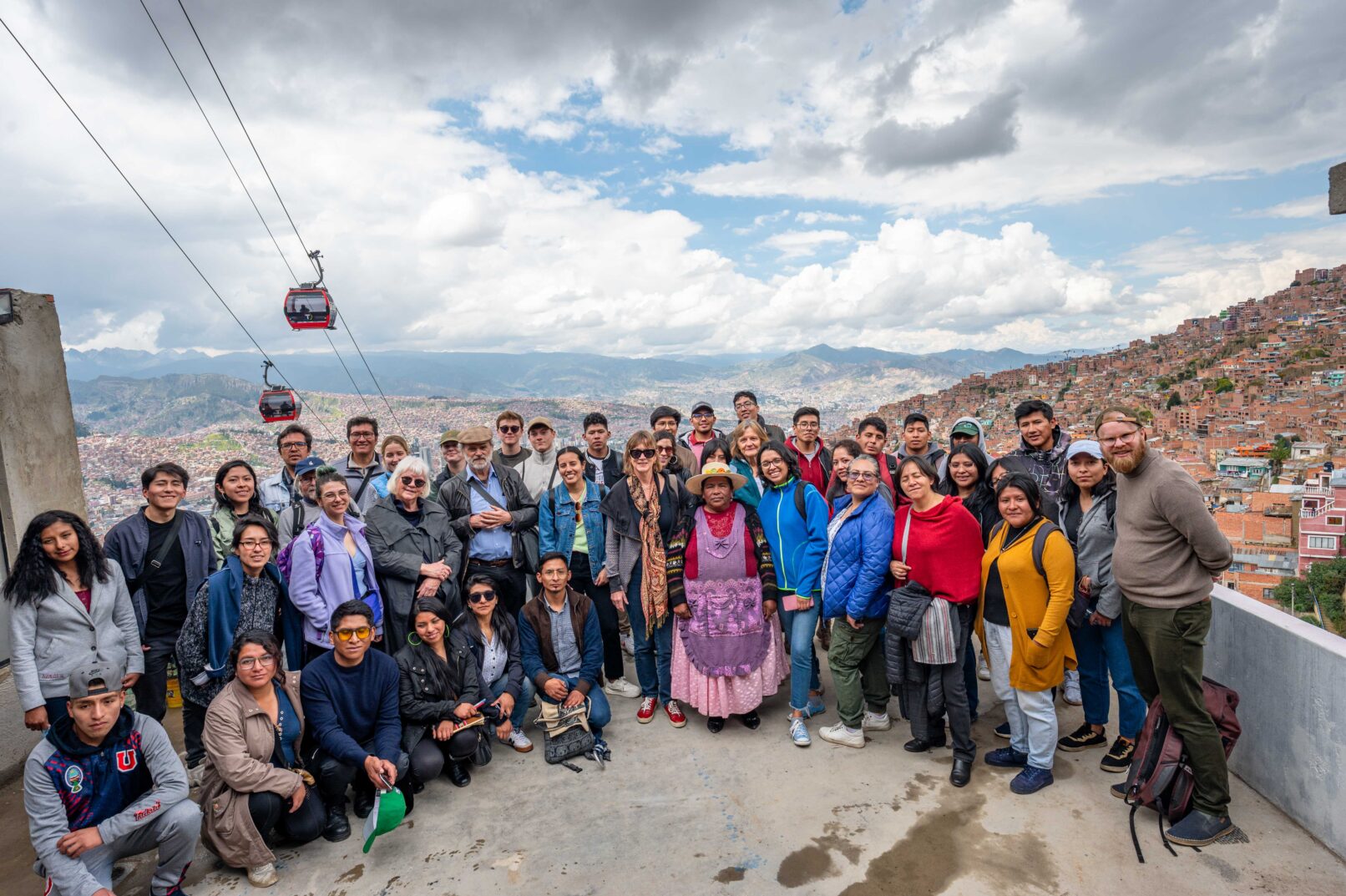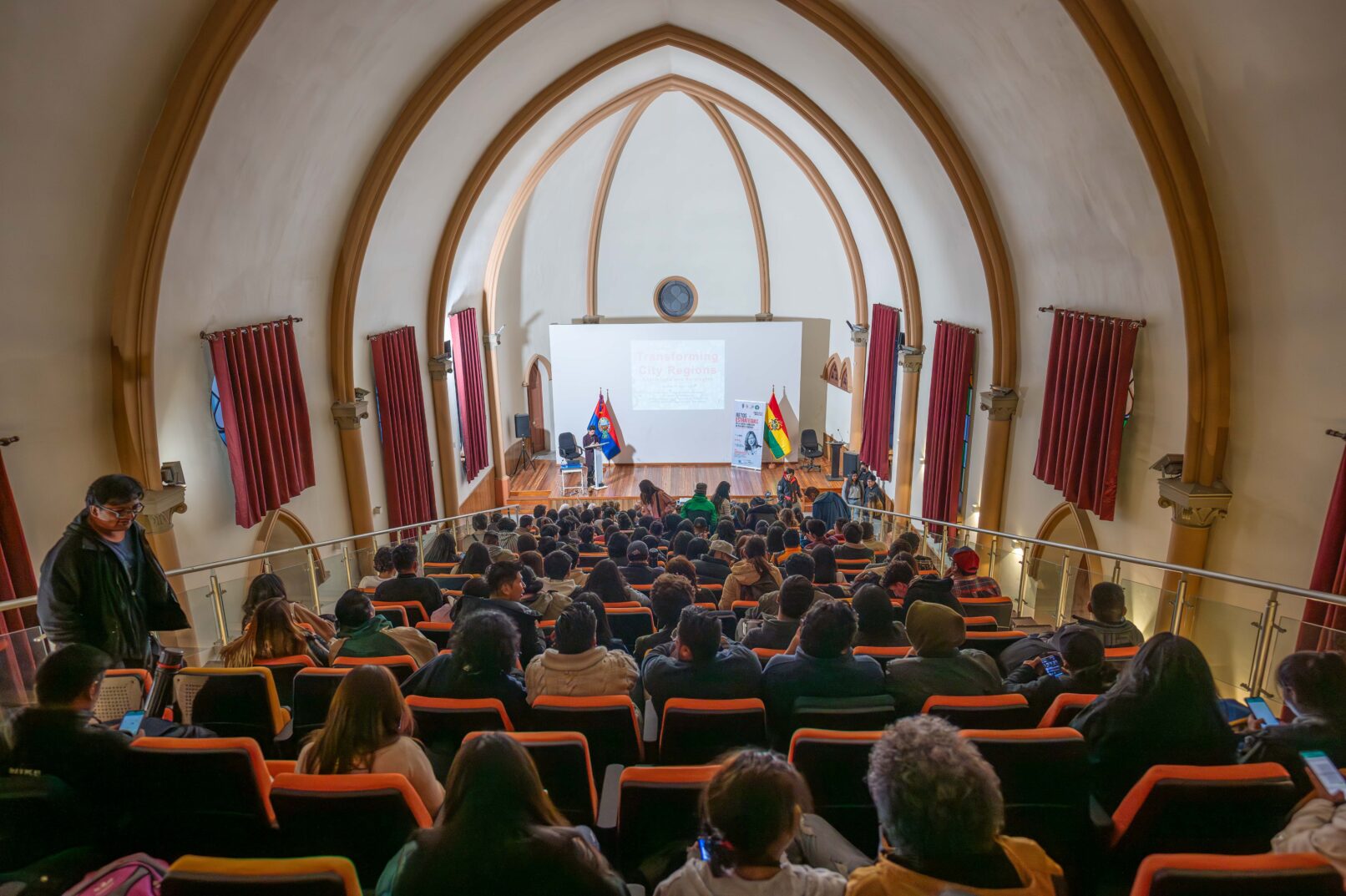Resilience and urban development in cities in the Andes
Excursion / Symposium / Workshop
Partner: Universidad Mayor de San Andrés (UMSA)
23.03-07.04.2024
The Bolivia excursion “La Paz: City of Science and Innovation” was a cooperation between the Universidad Mayor de San Andrés (UMSA) in La Paz and RWTH Aachen University with a focus on resilient urban development and was funded by RWTH Staff Mobility Worldwide (SMW). The first week was dedicated to cultural activities to provide a deeper understanding of Bolivia’s history and development dynamics, while the second part was dedicated to an academic workshop in collaboration with local stakeholders. The thematic focus aimed to combine cultural insights with academic learning by highlighting the historical and economic contexts of Bolivian cities and then developing practical strategies for urban planning. The main learning objectives were to provide students and academic staff with a comprehensive understanding of Bolivian urban planning, foster interdisciplinary collaboration and develop innovative solutions for urban resilience.
The cultural activities of the first week included visits to Tarija, Valle de Cinti, Salar de Uyuni, Potosí and Sucre. In Tarija, the participants explored the local wine industry and gained an insight into the regional economy. The visit to Valle de Cinti showed traditional architecture and historical economic influences. The Salar de Uyuni offered insights into a fascinating landscape and the lithium economy, which is of crucial importance for the global energy transition. In Sucre, participants learned about government structures and traditional urban planning and deepened their understanding of Bolivia’s historical and cultural landscape. These activities provided integrated experiences that connected Bolivia’s past with its current development dynamics.
The symposium in La Paz dealt with four main topics that are of crucial importance for urban resilience: Culture and Identity, Urban Mobility, Spatial Planning, and Environment and Ecology. There were contributions from local actors, researchers from UMSA and RWTH Aachen University on each topic, with over 21 presentations. Prof. Christa Reicher opened the symposium with a keynote speech on resilient urban design, laying the foundation for in-depth discussions on the integration of traditional cultural values into modern urban planning requirements. The symposium emphasized the importance of local knowledge and interdisciplinary collaboration in addressing urban challenges in La Paz and El Alto.
The workshop focused on the development of innovative urban planning concepts for La Paz and El Alto. The methodology included conducting analyses and developing spatial visions for a resilient urban structure. Key findings emphasized the need for an efficient, interconnected transportation system through nodes and reliefs as well as green connections between El Alto and La Paz. A comprehensive action plan was developed that included green corridors, strategic projects, productive housing, mobility integration, social identity and governance. More than 40 students and 12 lecturers from UMSA and the RWTH Aachen University team took part in the workshop. The results were presented at a public event that ended with a folkloric dance performance symbolizing the connection between cultural heritage and modern urban planning.
Looking back on the local experience, the excursion contributed significantly to the learning outcomes by placing theoretical knowledge in a real-world context. Key learnings include the importance of incorporating cultural and historical contexts into urban planning, the value of interdisciplinary collaboration, and the need for adaptable and resilient urban strategies. These international activities not only enhance the curricula, but also equip participating students and faculty with key competencies in resilient urban planning and prepare them to address global urban challenges effectively.
